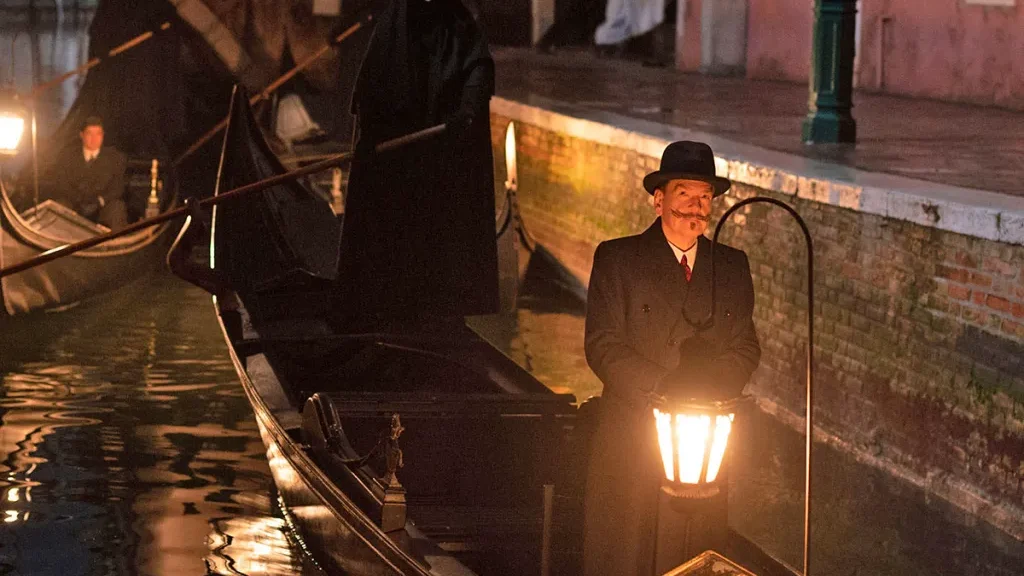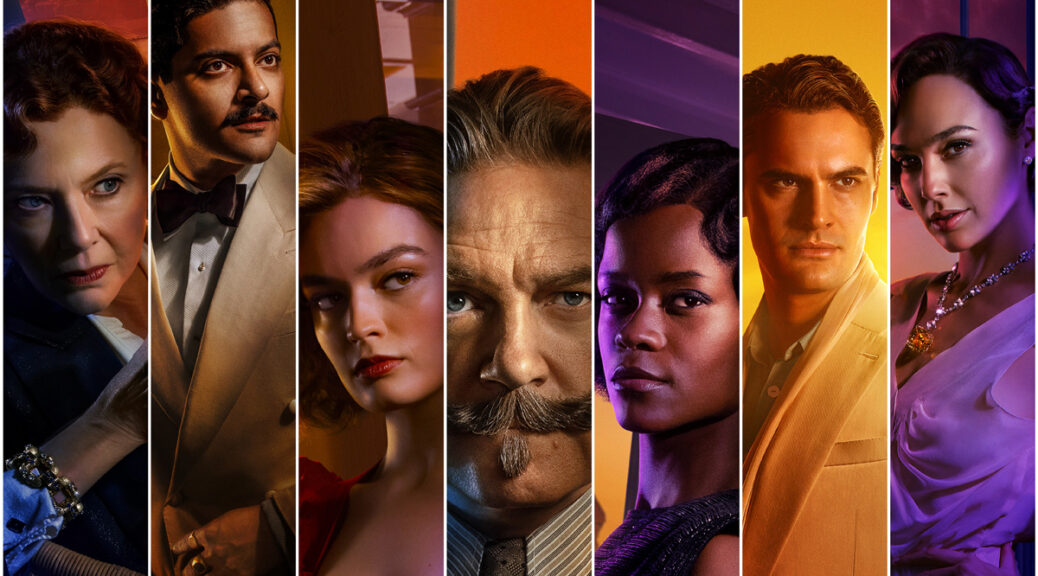A Haunting in Venice
by Hope Madden and George Wolf
If we’re going to congratulate Rian Johnson for reviving the murder mystery, save a backslap for Kenneth Branagh. His Murder on the Orient Express came two years before 2019’s Knives Out, and though Branagh may be adapting decades-old Agatha Christie classics, he’s proven adept at giving them a stylish and star-studded new sheen.
Branagh also stars again as Hercule Poirot, the legendary Belgian detective who showed a friskier side (probably thanks to Johnson’s sublime Benoit Blanc character) in last year’s Death on the Nile. Now for the third in their mystery series, Branagh and screenwriter Michael Green embrace the season with a gorgeous and frequently engaging update of Christie’s 1969 novel “Halloween Party.”
It is 1947, when the now-retired and war weary Poirot meets up with his old friend Ariadne Oliver (Tina Fey) in Venice. Oliver is a famous writer who considers herself quite the smarty, but she needs Poirot’s help to debunk the work of Mrs. Reynolds (Michelle Yeoh), a medium whose talks with the dead are pretty damn convincing.
The setting is a Gothic manor with a disturbing past, where Poirot agrees to attend a seance on Halloween night. There, after a children’s party, Mrs. Reynolds will attempt to give Rowena Drake (Kelly Reilly) the answers she seeks about the murder of her daughter, Alicia (Rowan Robinson).
But another murder soon steals the show, with even Poirot himself questioning his own eyes as things in the night go plenty bumpy.
Branagh again teams with cinematographer Haris Zambarloukos (Belfast, Death on the Nile), enveloping the film in a haunted house vibe that is wonderfully foreboding. The camera explores the confines of the manor via angles that are often extreme and disorienting, while lingering on cloaks, masks and other various other articles of creep.
Poirot is a changed man since last we met. He’s seen too much evil, and believes in “no God, no ghosts,” as a cloud of trauma and grief that fits the film’s mood hangs over him. Branagh and his stellar ensemble (including Jamie Dornan, Camille Cottin and Belfast‘s Jude Hill) work their character edges well, making sure no one is ever quite above suspicion.
And those suspicions are easier to play with when the source material isn’t as well known. But while revamping a deeper cut is welcome, the chance for creepy surprise does come at a price.
The core mystery just isn’t as compelling. Branagh and Green make alterations that prolong the chill factor, but result in moments that seem more like a Christie disguise than the face of the master herself.
A Haunting in Venice‘s lingering impression is as a slice of well-dressed fun. It’s a Spooky Season movie for those who don’t like things too scary, and an Agatha Christie tale for those who’d rather not think so hard.


